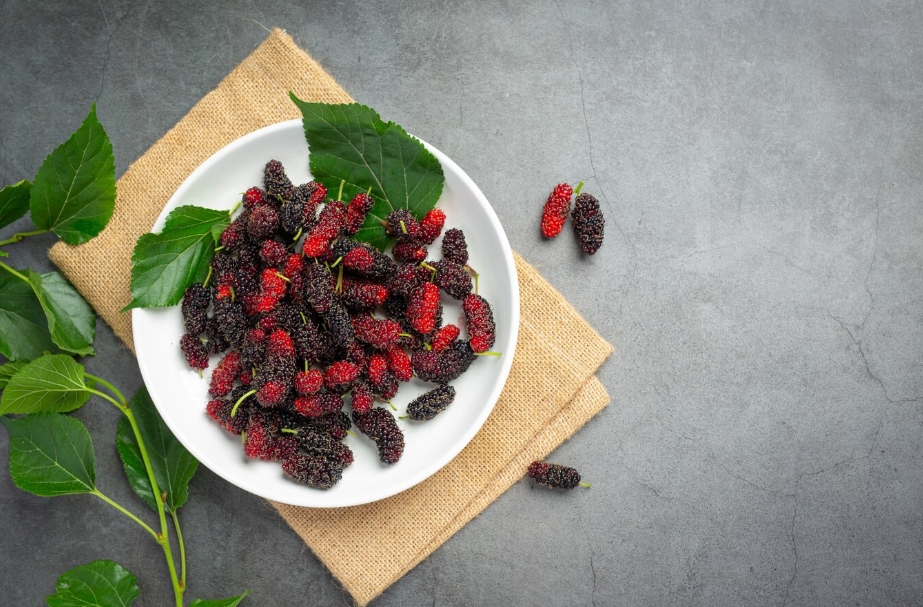In recent years, natural remedies have gained growing popularity for addressing chronic inflammation and boosting overall health. Among the numerous herbs available, mulberry leaf stands out as a powerful and time-tested botanical with remarkable anti-inflammatory properties. Mulberry leaf is now gaining attention in modern wellness circles as a cooling herb that supports immune function, regulates blood sugar, and promotes internal balance.
What Is Mulberry Leaf?
Mulberry leaves are harvested from the Morus alba tree, a deciduous plant native to China and widely cultivated across Asia, North America, and Europe. These leaves have been used for centuries in traditional medicine, especially in the form of mulberry leaf tea, tinctures, and powdered supplements. Known for their slightly bitter, earthy flavor, mulberry leaves are rich in vitamins, minerals, and bioactive compounds such as chlorogenic acid, flavonoids, and alkaloids like DNJ (1-Deoxynojirimycin), which are believed to contribute to their medicinal properties.

Anti-Inflammatory Properties of Mulberry Leaf
One of the primary reasons for mulberry leaves’ popularity in herbal medicine is their effectiveness in reducing inflammation. Chronic inflammation is a silent contributor to a host of diseases, including arthritis, cardiovascular disease, and autoimmune disorders. Research indicates that the phytochemicals found in mulberry leaves help regulate inflammatory pathways by inhibiting the production of pro-inflammatory cytokines and oxidative stress markers.
Unlike pharmaceutical anti-inflammatories that may come with side effects, mulberry leaf acts gently within the body, making it ideal for long-term use. This cooling herb is especially beneficial for people experiencing heat-related symptoms such as skin flare-ups, sore throats, or joint pain exacerbated by inflammation.
Mulberry Leaf for Detox and Immune Support
In traditional Chinese medicine, mulberry leaf is classified as a cooling and detoxifying herb, often prescribed to clear lung heat and improve liver function. These actions support the body's natural detoxification processes, allowing the immune system to perform more efficiently. It’s also commonly used in herbal detox tea blends that aim to eliminate internal heat and toxins.
Modern users often incorporate mulberry leaf extract into immune-boosting supplements or drink organic mulberry leaf tea daily as a gentle yet effective tonic. These products are widely available from TCM herb suppliers, natural health brands, and functional food manufacturers focusing on plant-based wellness solutions.
Blood Sugar Regulation and Additional Benefits
In addition to inflammation relief, mulberry leaf has shown promise in blood sugar regulation, making it a valuable herb for individuals managing type 2 diabetes or metabolic syndrome. DNJ, one of its active compounds, inhibits carbohydrate absorption, reducing blood glucose spikes after meals. Clinical trials have reported improved insulin sensitivity and reduced fasting blood sugar levels among participants using mulberry leaf supplements regularly.
Other notable benefits include support for cardiovascular health, improved lipid profiles, and enhanced skin clarity due to its antioxidant content. It's common to find mulberry leaves in weight management teas, anti-aging skincare formulas, and gut health products.
Application Scenarios and How to Use Mulberry Leaves
There are several practical ways to incorporate mulberry leaves into daily life:
Herbal Tea: Brewing dried mulberry leaves into a soothing tea is the most traditional and accessible method.
Capsules and Powders: Ideal for those seeking higher potency or convenience in dosing.
Topical Applications: Extracts are sometimes included in natural skincare products for inflammation-related skin issues.
Culinary Use: In some cultures, young mulberry leaves are steamed or sautéed as part of a functional food diet.
Many mulberry leaf product manufacturers now offer organic-certified options sourced from pesticide-free plantations, ensuring safety and potency for consumers.
Choosing the Right Mulberry Leaf Product
To ensure optimal benefits, it's important to choose high-quality mulberry leaf products. Look for labels that specify:
● Source of the herb, preferably organic
● Standardized extract content
● Reputable manufacturers with transparent sourcing and quality control processes
Trusted suppliers such as GMP-certified herbal manufacturers, Chinese herbal wholesale distributors, and natural health product brands often provide third-party testing and quality guarantees.
Conclusion
As more people turn to herbal medicine for long-term health solutions, mulberry leaf has emerged as a standout remedy. As a cooling herb, it offers natural support for inflammation relief, detoxification, blood sugar regulation, and immune balance. Its versatility allows it to be used in teas, supplements, skincare products, and functional foods, making it accessible for many wellness applications.
However, while mulberry leaf is generally considered safe, using it under professional guidance is important, especially for individuals with existing health conditions or those taking medications. Healthcare practitioners or licensed herbalists can help determine the proper dosage, form, and combination with other treatments to ensure safety and effectiveness. With informed use, mulberry leaf can be a valuable component of a holistic, plant-based approach to long-term health.
